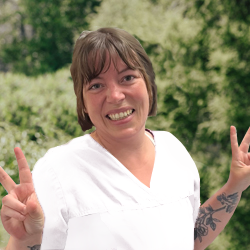Top Tips for Preventing Crowding and Keeping your Teeth Healthy
At the age of six to seven years, the first baby teeth start to get loose and fall out and the permanent ones erupt.
During this age we may start to see signs of crowding. Crowding or incorrect bites are usually a sign of incorrect growth. We encourage each patient to keep their lips together, breathe through their nose, keep their tongue in the roof of their mouth at rest and during swallowing. By remembering these 4 goals, they will achieve optimal growth. We offer our myofunctional orthodontics program – Myobrace, to help children establish proper function and achieve a healthy smile!
- Brush at least twice per day and floss once per day. Your child should be able to use an adult toothpaste with fluoride if they are able to spit out the excess.
- All twenty baby teeth are replaced with adult teeth and eight extra molars erupt in the posterior, four at the age of 6 and four more at 12.
- Protect permanent molars from cavities by having sealants placed. Sealants are a thin film of filling material that protect the deep grooves of your teeth from bacteria and decay. https://www.youtube.com/watch?v=1Glvr8ycHeQ#action=share
- Reduce sugar Intake. Tooth decay is caused by bacteria that feed on sugar. This forms acid that harms teeth.
- Limit snacking.
- Eat a healthy, balanced diet.
- Wear a mouth guard to protect the teeth when playing sports.
- While children are seeing our dentists for dental treatment, they can sit back and enjoy some of their favourite TV episodes and movies. It makes the time fly by!

 Many things to consider and assess during the first months of life.
Many things to consider and assess during the first months of life.






